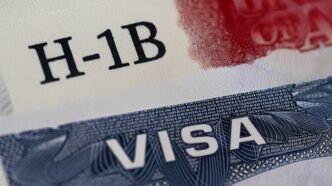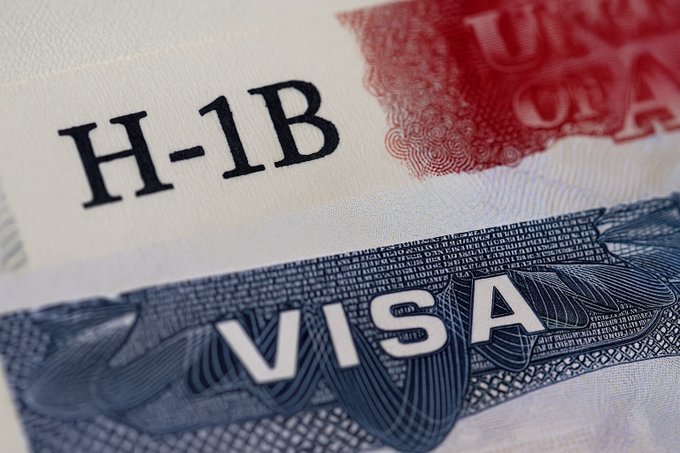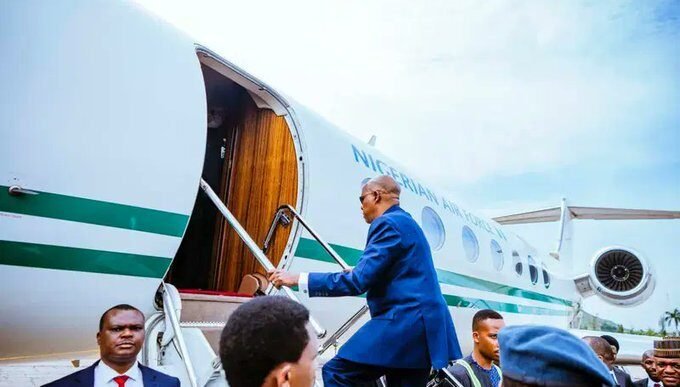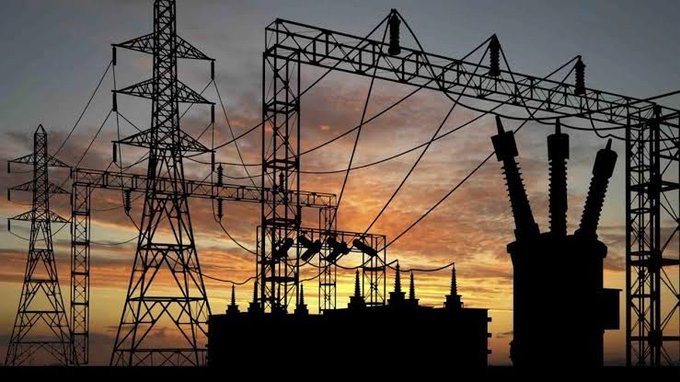In a move aimed at calming widespread concern across the global technology sector, the White House has issued a major clarification to its newly announced H-1B visa policy. Officials confirmed that the controversial $100,000 fee will be a one-time payment imposed only on new applicants, and will not apply to current H-1B visa holders or those seeking renewals and extensions.
The update comes after several days of uncertainty that rattled Silicon Valley, Wall Street, and the international tech community. Industry leaders, startup founders, and immigrant workers had raised alarms that the rule could impose unsustainable costs on companies and disrupt America’s access to global talent.
Background: The H-1B Visa and Its Importance to the U.S. Tech Industry
The H-1B visa program was created to allow U.S. employers to hire highly skilled foreign workers in specialized occupations where there are shortages of domestic talent. These jobs are concentrated in technology, engineering, mathematics, and healthcare, but the program has become synonymous with Silicon Valley’s reliance on global tech talent.
Currently, there are nearly 600,000 H-1B visa holders in the United States, with the majority employed by technology companies. Giants such as Google, Microsoft, Amazon, Meta, and Apple have historically been among the biggest sponsors of H-1B workers. The program has also been crucial for smaller startups looking to compete in cutting-edge fields like artificial intelligence, cybersecurity, fintech, and biotechnology.
Any policy changes to H-1B visas therefore carry significant weight, not just for U.S. employers but also for the global flow of skilled labor.
The Controversial Fee and Initial Industry Shock
When the White House first unveiled the $100,000 fee requirement, the announcement was widely interpreted as applying across the board — to new applicants, renewals, and existing visa holders. That interpretation triggered widespread anxiety across the technology industry.
Critics argued that such a sweeping fee would:
- Create barriers for smaller firms and startups that cannot afford high upfront recruitment costs.
- Place undue financial burden on foreign workers, some of whom feared employers might pass on the costs.
- Disrupt ongoing projects that rely heavily on existing H-1B holders, particularly in software development and research.
- Weaken the U.S. in the global competition for tech talent, especially against countries like Canada, the UK, and Australia, which have been rolling out more welcoming visa programs for skilled immigrants.
The backlash was swift, with major industry groups, chambers of commerce, and immigration advocacy organizations lobbying the administration for clarity.
White House Clarification: A Targeted, One-Time Fee
Responding to the growing controversy, a senior White House official on Saturday clarified that the $100,000 charge will be a one-time fee imposed only at the initial application stage for new H-1B visas.
“This policy is designed to balance the needs of U.S. employers with our broader economic goals,” the official explained. “The $100,000 fee applies only to new H-1B applicants at the time of filing, not to renewals or extensions.”
According to the administration, the fee is intended to:
- Generate funds for domestic workforce development programs, including STEM education and upskilling initiatives for U.S. workers.
- Cover administrative costs associated with managing the H-1B program.
- Ensure that companies hiring foreign workers make a direct contribution to the U.S. economy beyond salaries and taxes.
Reactions from the Tech Industry
The clarification has been welcomed by many in the technology sector as a relief, though concerns remain about the high upfront cost for new hires.
- Big Tech: Large corporations like Google, Amazon, and Microsoft are expected to absorb the new costs relatively easily. For them, the bigger priority was protecting renewals for existing workers, many of whom are already deeply embedded in company operations.
- Startups and SMEs: Smaller companies remain worried. For startups working on limited funding, a $100,000 fee per new H-1B hire represents a significant financial hurdle. Some may now think twice before recruiting global talent.
- Foreign Professionals: For aspiring international workers, the news is a mixed bag. While renewals are safe, the high fee could limit opportunities for first-time applicants, particularly in industries where employers are cost-sensitive.
A leading U.S. tech lobby group said in a statement:
“We are relieved that the administration has clarified this policy. Protecting renewals is critical to avoid disruption. However, we remain concerned that the size of the fee could discourage innovation, particularly among startups.”
Global Implications: Can the U.S. Stay Competitive?
The U.S. is not the only country vying for highly skilled foreign talent. In recent years, Canada, the United Kingdom, Germany, and Australia have all introduced or expanded programs designed to attract tech workers with streamlined visa processes and lower barriers.
If the $100,000 fee significantly slows new applications to the U.S., other countries could see a surge in global talent inflows — particularly Canada, which already benefits from proximity to the U.S. tech ecosystem and more immigrant-friendly policies.
This dynamic raises a pressing question: Can the United States maintain its global edge in technology and innovation while imposing one of the highest visa fees in the world?
Economic Impact and Policy Debate
Economists are split on the likely effects:
- Supporters of the policy argue that it will help fund U.S. workforce development while still keeping the door open for global talent. They believe large firms can absorb the cost, and that the policy will encourage companies to invest in training American workers.
- Critics warn that the fee could undermine startups and mid-sized companies, slow innovation, and reduce diversity in the U.S. tech workforce. They point out that many groundbreaking innovations in Silicon Valley were driven by immigrant founders and employees.
The policy debate is expected to continue in Congress and among industry groups as the next H-1B application cycle approaches.
Relief for Current Visa Holders
For current H-1B visa holders, the White House clarification provides much-needed reassurance. Renewals and extensions will continue under existing fee structures, ensuring that workers already embedded in U.S. companies can continue contributing without disruption.
This is particularly important for workers from countries such as India, China, and Nigeria, who make up a large share of H-1B visa holders and are critical to U.S. technology development.
Conclusion: A Policy That Calms, but Questions Remain
The White House clarification on the H-1B visa fee represents an important step in calming industry fears and ensuring continuity for current visa holders. By limiting the $100,000 charge to new applicants only, the administration has reduced the immediate risk of disruption to ongoing projects and businesses.
Still, the size of the fee remains a subject of debate, particularly for smaller companies and startups. As the global race for skilled talent intensifies, the U.S. must balance its domestic workforce priorities with the need to remain the top destination for global innovators.
The policy is expected to take effect in the next H-1B application cycle, with additional guidance from the Department of Homeland Security to follow. For now, the tech industry, immigrant professionals, and policymakers will be watching closely to see how this clarification plays out in practice.














